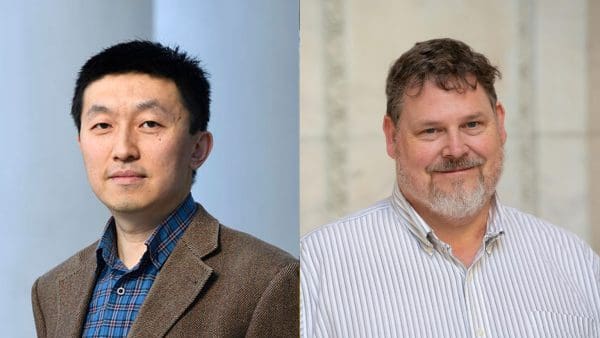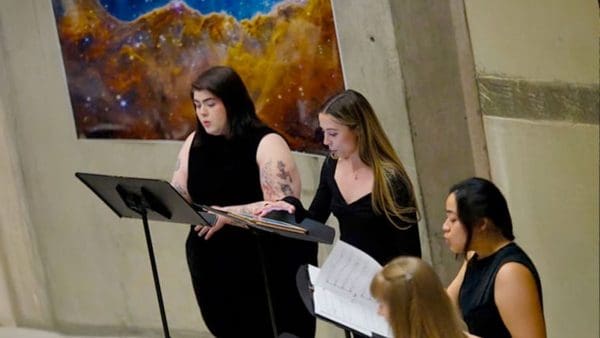
Legendary investor and philanthropist William H. “Bill” Miller III has made a lead gift of $50 million in a combined $75 million philanthropic effort to support the Krieger School’s Department of Physics and Astronomy.
Miller’s gift will fund endowed professorships, postdoctoral fellowships, and graduate research, and will provide ongoing support for research infrastructure. His gift also served as the impetus for two anonymous donors to support the department as well. This expands to $75 million the funding to advance key areas of physics research.
The gift will propel one of the nation’s most storied departments of physics to new heights—expanding research into emerging subfields of study and attracting promising young researchers, says Johns Hopkins University President Ronald Daniels.
An historic gift
“The support Bill Miller has shown Johns Hopkins is historic,” Daniels says. “Four years ago, Mr. Miller committed what is believed to be the largest ever gift to a university philosophy program, and now he has made an equally impressive gift to the study of physics and astronomy. We are endlessly grateful for his generosity that is driving our scholars to explore everything from the human condition to our understanding of the universe and our place in it. A philanthropic investment of this magnitude will be a standard-bearer for how a robust physics and astronomy department can broaden its research, engage in collaborative exploration, and advance to the front lines of emerging areas.”
At the center of Miller’s gift is funding for young scientists. Support for these future leaders in physics and astronomy includes the creation of 10 postdoctoral fellowships and 10 endowed graduate research fellowships. The gift will also support the establishment of three endowed professorships, a cohort of senior and junior level faculty lines, and funding for research infrastructure such as laboratory equipment and instrumentation. In all, this new philanthropic support will enable the department to grow from its current 33 faculty to 46 over the next five years.
“The visionary research currently underway in our physics and astronomy department will be enhanced by this gift in vital ways that could potentially change our view of the universe,” says Christopher S. Celenza, James B. Knapp Dean of the Krieger School.
The department’s expertise
The Department of Physics and Astronomy has a notable history dating back to 1876, when it became the first physics department in the United States dedicated to research.
Today, the department’s expertise is distributed in three primary areas: astronomy, condensed matter physics, and particle physics. Its experimental and theoretical faculty members are renowned for their work in areas such as astrophysics, cosmology, big data, quantum materials, extra-galactic astronomy, particle-theory model building, and dark matter detection.
“Physics seeks to understand reality at its most fundamental level,” says Miller. “It is the bedrock on which the other sciences rest. I am delighted to be able to make a gift to Johns Hopkins physics that will enable it to add new resources and continue to build on its distinguished history.”
In recognition of Miller’s gift, the department has been renamed the William H. Miller III Department of Physics and Astronomy. The department had carried an honorific naming in recognition of the department’s first chair, Henry A. Rowland, who was known as one of the most significant physicists of the 19th century for his work in electricity, heat, and astronomical spectroscopy. The department chair’s position will now be named for Rowland, and the university will seek additional opportunities to honor his legacy.
Miller is the founder and chairman of Miller Value Partners and formerly the longtime manager of the Legg Mason Capital Management Value Trust. Miller serves on the Johns Hopkins University Board of Trustees. He majored in economics and European history at Washington and Lee University, graduating with honors in 1972. He later served as a military intelligence officer overseas and studied philosophy at Johns Hopkins before turning to his career in investments.




